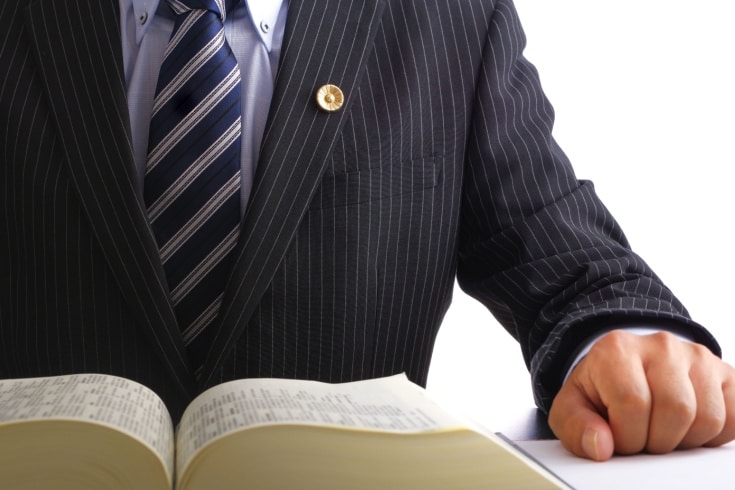Rampant 'False Claims of Intellectual Property Infringement' on Amazon: Explaining Legal Responses and Case Law

In recent times, there has been a rampant issue of “false intellectual property infringement claims” on Amazon (e-commerce sites). These “false claims” are made with the intent to disrupt business operations or to eliminate competitors, despite there being no actual infringement of intellectual property rights. As a result of such malicious false claims, sellers can find themselves facing account suspension or an inability to sell, which has become a serious problem.
This article will clearly explain the nature of these business disruptions occurring on Amazon and the possible responses, including relevant legal precedents.
Business Disruption through False Intellectual Property Infringement Claims on Amazon

In recent years, there has been a surge in the misuse of intellectual property infringement claims on Amazon to disrupt business operations. This article explains the mechanics behind this issue.
What are Amazon’s Intellectual Property Infringement Claims?
On Amazon, intellectual property owners or their agents can file claims of intellectual property infringement. This procedure is intended for copyright or trademark holders to report suspected infringements of their rights on the Amazon website.
Reference: Claims and Procedures for Intellectual Property Infringement
When an intellectual property infringement claim is made, Amazon sends a warning email to the seller.
Receiving this warning results in the cancellation of the listing for the implicated product. In other words, the product can no longer be sold. If the product is stored in an FBA warehouse (a warehouse owned by Amazon where sellers can store their products), it is important to note that storage fees will continue to accrue.
Furthermore, if the seller ignores the warning, the health of their account may be compromised, potentially leading to account suspension in the worst-case scenario. This requires additional caution.
Rampant Misuse as a Form of Business Disruption
Although intellectual property infringement claims are designed to protect the rights of copyright and trademark owners, there are instances where claims are made without any actual infringement, with the intent to disrupt business or eliminate competitors.
Recently, a common tactic involves competitors posting product description images that are similar to those of the seller and then filing copyright infringement claims based on those images. By mobilizing multiple accounts to make intellectual property infringement claims, they aim to lower the health metrics of the seller’s account, leading to listing suspension or account deletion. This practice has become increasingly prevalent.
Responding to False Claims of Intellectual Property Infringement
When faced with a false claim of intellectual property infringement, one initial course of action could be to request the retraction of the claim or to file an objection on Amazon.
However, even if such a retraction request or objection is made, there is no guarantee that it will be accepted. Furthermore, if the seller incurs damages, it is not possible to compensate for the losses that have already occurred.
Therefore, this section will explain the legal claims that a seller can make in the event that they have suffered damages.
Reference: Policy on Intellectual Property, Deceptive Practices, and Spam
Civil Law Claims in Response to False Allegations of Intellectual Property Infringement
Here, we will explain the civil law claims that can be made in response to false allegations of intellectual property infringement.
What is Civil Law?
Civil law is the fundamental law that governs legal relationships between private individuals and is considered the law of the general public. However, it is also crucial as the basic law for business activities of entrepreneurs and sellers.
Civil law regulates everyday transactions in economic activities, and in the absence of special laws, it is always necessary to revert to civil law for consideration.
Civil Law Claims in the Event of Business Interference
If you are subjected to business interference through the misuse of false intellectual property infringement claims, a possible civil law claim is to seek damages based on tort under Article 709 of the Japanese Civil Law (民法第709条).
(Damages for Tortious Acts) Article 709: A person who intentionally or negligently infringes the rights or legally protected interests of another person shall be liable to compensate for the damage arising therefrom.
Japanese Civil Law (民法) Article 709
Article 709 of the Japanese Civil Law establishes the right to claim damages based on tortious acts. In social life, various troubles can arise. Therefore, Article 709 provides for cases where the victim can claim compensation for damages from the perpetrator.
In this case, if a seller’s product information is unjustly removed due to a false intellectual property claim, the following damages could be claimed:
- Lost profits due to the inability to sell the product as the listing was suspended.
- Personnel costs (expenses) for handling the matter.
- Legal fees incurred when engaging a lawyer for litigation procedures.
While not all of these claims may be recognized as damages by the court, it is conceivable to claim them as damages in a lawsuit.
Defending Against False Claims of Intellectual Property Infringement under the Unfair Competition Prevention Act

Understanding the Unfair Competition Prevention Act (Anti-Unfair Competition Law)
The Unfair Competition Prevention Act (hereinafter referred to as the “Anti-Unfair Competition Law”) was established as a law complementing various other laws, with the primary goal of ensuring fair competition among businesses and the proper functioning of the market economy.
It is indeed a law designed to prevent improper competitive practices among businesses and, in cases where such competition occurs, to impose sanctions such as fines and imprisonment.
Claims under the Unfair Competition Prevention Act in Cases of Business Interference
When subjected to business interference through the misuse of false intellectual property infringement claims, one possible course of action is to seek damages for defamation of business reputation based on Article 2, Paragraph 1, Item 21, and Article 4 of the Japanese Unfair Competition Prevention Act (不正競争防止法).
Article 2: For the purposes of this Act, “unfair competition” refers to the following:
Item 21: Acts of notifying or disseminating false facts that harm the business reputation of a competitor.
Source: Unfair Competition Prevention Act, Article 2, Paragraph 1, Item 21, and Article 4
Article 4: A person who intentionally or negligently commits an act of unfair competition and infringes on the business interests of another person shall be liable for damages caused thereby. However, this shall not apply to damages caused by the use of trade secrets or restricted data after the rights specified in Article 15 have been extinguished under the provisions of the same article.
Article 2, Paragraph 1 of the Unfair Competition Prevention Act lists multiple types of conduct that constitute unfair competition, with Item 21 defining acts of defamation as such conduct.
Furthermore, Article 4 of the Act stipulates the circumstances under which a claim for damages can be made for acts of unfair competition.
In the following court case example, the act of making a false trademark infringement claim was recognized as “a false fact that harms the business reputation of the plaintiff, who is in competition with the defendant, and constitutes an act of unfair competition under Item 21 of Paragraph 1 of Article 2 of the Act.”
Regarding damages, as with claims based on tortious acts, there is a possibility that lost profits and other damages may be recognized.
Case Examples Involving False Claims of Intellectual Property Infringement
Finally, we present two case examples where sellers on Amazon made damage claims after being falsely accused of intellectual property infringement, and the claims were upheld in court.
▶ Osaka District Court Decision, May 11, Reiwa 5 (2023) (Case No. Reiwa 3 (Wa) 11472)
■ Case Summary
The plaintiff, who sold Korean idol merchandise on Amazon, was accused by the defendant, who sold similar products, of infringing the defendant’s copyright with images used on Amazon. As a result, the plaintiff’s transactions were suspended. The plaintiff claimed that the accusations were false and filed for damages based on Article 2, Paragraph 1, Item 21 of the Unfair Competition Prevention Act (Japanese Unfair Competition Prevention Act) and Article 709 of the Civil Code (Japanese Civil Code), which was accepted by the court.
■ Court Findings
・The defendant’s images did not possess originality to qualify as copyrighted works.
・The defendant’s false claims that the plaintiff was infringing copyright were acts of declaring false facts that damaged the business reputation of the plaintiff, who was in competition with the defendant, and constituted an act of unfair competition under Article 2, Paragraph 1, Item 21 of the Unfair Competition Prevention Act.
▶ Tokyo District Court Decision, July 10, Reiwa 2 (2020) (Case No. Heisei 30 (Wa) 22428)
■ Case Summary
The plaintiff, who sold pillows and mattresses on Amazon, was accused by the defendant of infringing the defendant’s trademark rights with the plaintiff’s products. The plaintiff claimed that these accusations were false and filed for damages based on Article 2, Paragraph 1, Item 21 of the Unfair Competition Prevention Act and Article 709 of the Civil Code, which was accepted by the court.
■ Court Findings
・The plaintiff’s products did not infringe on any of the defendant’s trademark rights.
・The claims made were intended to suggest that the plaintiff’s products infringed on the defendant’s trademark rights, and the content of these claims was false and damaged the business reputation of the plaintiff, who was in competition with the defendant. This constituted an act of unfair competition under Article 2, Paragraph 1, Item 21 of the Unfair Competition Prevention Act. Therefore, the plaintiff was entitled to seek an injunction against the defendant to prevent the dissemination or publication of false facts that the plaintiff’s products infringed on the defendant’s trademark rights to third parties.
Conclusion: Consult with Experts on Intellectual Property Rights

This article has provided an overview of the increasingly common issue of false intellectual property claims on Amazon and the legal assertions that may be possible in such cases.
However, the nature of business interference on Amazon has diversified in recent years, necessitating more specialized countermeasures. Therefore, the content of claims and methods of resolution that can be made vary depending on the specific circumstances of each seller. For advice on what claims are possible and what measures are necessary, please consult with attorneys who are proficient in IT and digital matters.
Guidance on Measures by Our Firm
Monolith Law Office is a law firm with high expertise in both IT, particularly the internet, and legal matters. In recent years, intellectual property rights such as design rights and trademark rights have garnered significant attention. Our firm provides solutions related to intellectual property rights, which are detailed in the article below.
Areas of practice at Monolith Law Office: IT & Intellectual Property Legal Services for Various Companies[ja]
Category: Internet





















